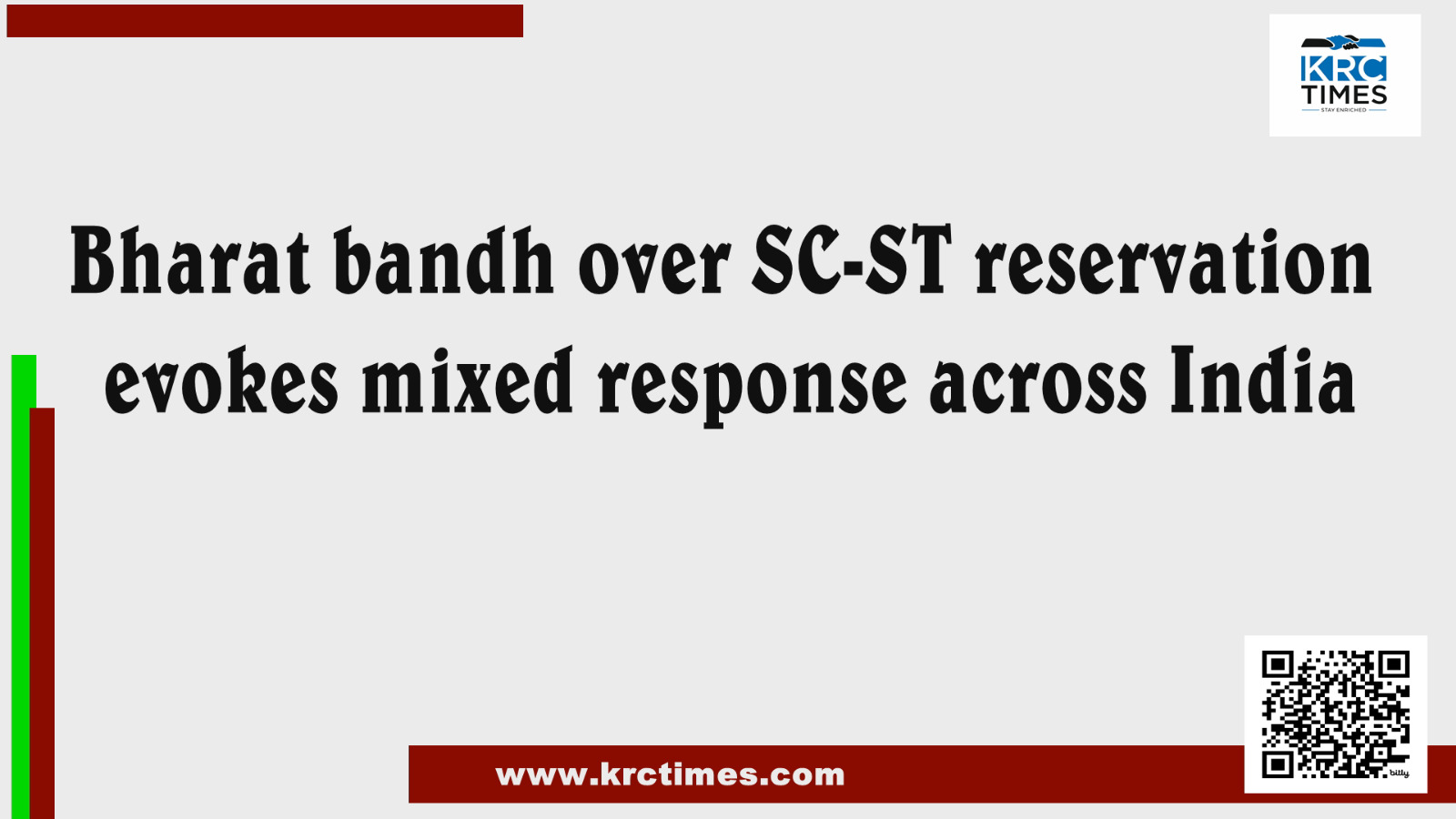Despite the bandh’s peaceful nature so far, authorities remain vigilant, ensuring that public safety and order are maintained throughout the day
 KRC TIMES National Bureau
KRC TIMES National Bureau

New Delhi : The Bharat Bandh called by several groups on Wednesday to protest the Supreme Court’s recent verdict on the sub-classification of Scheduled Castes (SCs) and Scheduled Tribes (STs) elicited varied reactions across the country.
While some regions saw significant disruptions, others remained largely unaffected, with the bandh receiving mixed support from different political and social organisations.
In Jharkhand, the bandh led to partial disruptions as public buses stayed off the roads and schools remained closed in several areas, including the state capital, Ranchi. Chief Minister Hemant Soren cancelled his visit to Palamu due to the strike.
The state’s ruling alliance—comprising the Jharkhand Mukti Morcha (JMM), Congress, and the Rashtriya Janata Dal (RJD)—backed the bandh, along with Left parties. Despite the support, the impact was uneven across the state, with some parts witnessing protests while others continued business as usual. Security was heightened at key locations to prevent any untoward incidents.
Women passengers wait for transport vehicles amid Bharat Bandh call against the Supreme Court’s recent runing on SC/ST reservation, in Ranchi, Wednesday, Aug. 21, 2024.
In Madhya Pradesh, the state home department had issued directives to district authorities to ensure law and order during the bandh. Veteran Congress leader Digvijaya Singh extended his support to the bandh, voicing concerns over the Supreme Court’s decision. However, the overall impact of the bandh in the state remained minimal, with authorities successfully managing to keep disruptions in check.
Odisha witnessed partial disruptions in rail and road services. Agitators detained trains at Bhubaneswar and Sambalpur, while passenger buses refrained from operating on several routes. Despite these interruptions, government offices, banks, and educational institutions functioned normally. Security was beefed up across the state, particularly in the secretariat and other important government buildings.

In Bihar, the bandh briefly disrupted vehicular traffic in some districts. In Jehanabad, protestors clashed with security personnel as they attempted to block National Highway-83. Similar attempts were made in Madhepura and Muzaffarpur, but security forces quickly dispersed the protestors.
Meanwhile, recruitment exams for police constables continued as scheduled, with the state government ensuring smooth transportation for candidates.
In Rajasthan, while some districts observed near-total shutdowns, others saw only partial impact, with essential services continuing largely uninterrupted. The SC ST Sanyukt Sangharsh Samiti’s rally in Jaipur has drawn significant attention, as community members express their discontent with the ruling, fearing it could weaken the foundational principles of reservation.
Despite the bandh’s peaceful nature so far, authorities remain vigilant, ensuring that public safety and order are maintained throughout the day.
The Bharat Bandh was called by 21 organisations across the country in response to the Supreme Court’s August 1 decision, which empowered states to make sub-classifications within SCs and STs for granting reservations. The protesting groups argue that the verdict undermines the basic principles of reservation and could potentially harm the marginalized communities.
While some states and regions experienced significant disruptions, others saw minimal impact. The varied response to the bandh underscores the differing levels of support and concern regarding the Supreme Court’s ruling on community-based reservations


